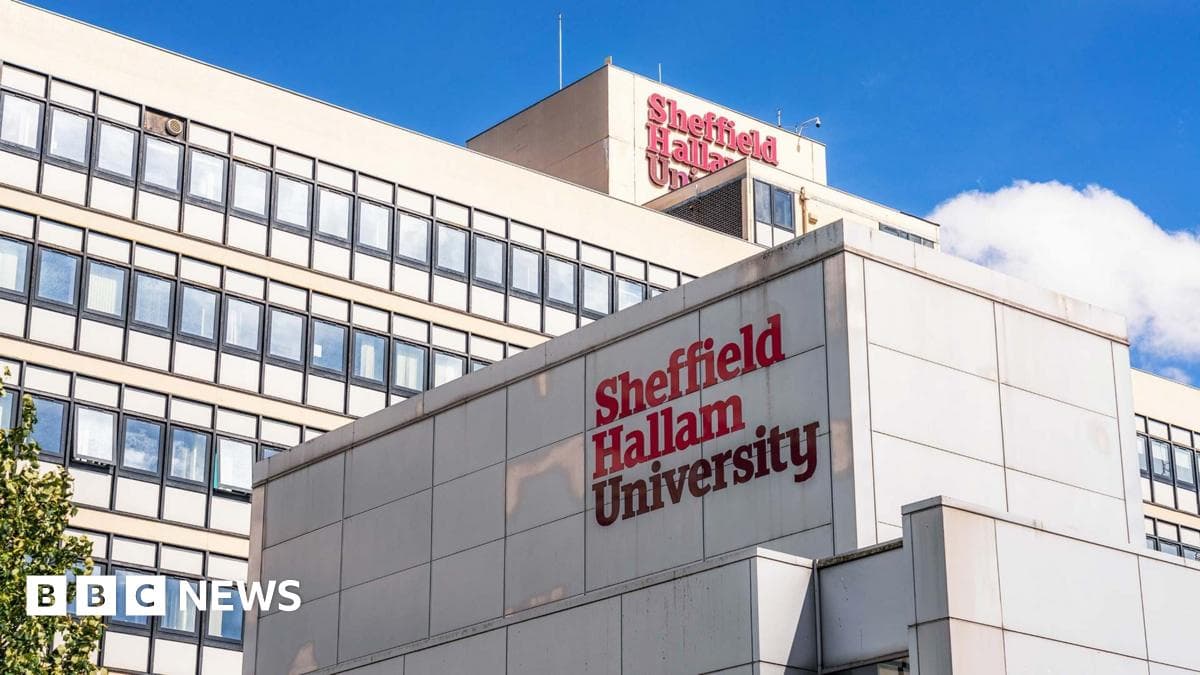We're loading the full news article for you. This includes the article content, images, author information, and related articles.
A UK counter-terrorism investigation into alleged Chinese state intimidation at a British university raises critical questions for Kenyan academic institutions about safeguarding scholarly independence amid growing international partnerships.

GLOBAL - An investigation into allegations that Sheffield Hallam University in the United Kingdom faced a sustained campaign of intimidation by the Chinese state to halt sensitive human rights research has been referred to British counter-terrorism police. The case, which revolves around academic work on forced labour in China's Xinjiang region, has ignited a global debate on academic freedom and foreign interference, carrying significant implications for universities worldwide, including those in Kenya engaged in expanding partnerships with Chinese institutions.
South Yorkshire Police confirmed on Monday, November 4, 2025, that the investigation was handed over to counter-terrorism authorities because the allegations fall under Section 3 of the UK's National Security Act 2023. This section addresses the offence of "assisting a foreign intelligence service," defined as conduct intended to materially aid such a service in carrying out UK-related activities. The move escalates the case from a university matter to one of national security for the United Kingdom.
The controversy centres on the work of Professor Laura Murphy, an expert on human rights and contemporary slavery at Sheffield Hallam's Helena Kennedy Centre for International Justice. Her research team has published extensively on forced labour involving the Uyghur minority in Xinjiang, with their findings cited by international bodies and Western governments. The Chinese government has consistently denied these allegations, terming the programs as initiatives for poverty alleviation.
According to documents released to Professor Murphy and reported by The Guardian and the BBC, Sheffield Hallam University experienced a two-year pressure campaign. This allegedly included threats made by individuals identifying as members of China's National Security Service against university staff based in Beijing. The core demand was the cessation of Professor Murphy's research. In February 2025, the university instructed Professor Murphy to halt her work on China and forced labour, and a related research website was taken down. An internal university email from July 2024, obtained through a subject access request, stated that “attempting to retain the business in China and publication of the research are now untenable bedfellows.”
Following an eight-month stoppage, Sheffield Hallam University reversed its decision in October 2025, issuing an apology to Professor Murphy and committing to support her research. A university spokesperson stated the initial decision was based on a "complex set of circumstances at the time, including being unable to secure the necessary professional indemnity insurance," and denied it was based on commercial interests. The university now asserts its commitment to "securing and promoting freedom of speech and academic freedom within the law."
While this incident occurred thousands of kilometres away, it serves as a critical case study for Kenya's higher education sector. In recent years, academic collaboration between Kenya and China has deepened significantly. This includes the establishment of several Confucius Institutes at major universities like the University of Nairobi, Kenyatta University, Egerton University, and Moi University, which have enrolled over 100,000 students in Chinese language courses. In November 2024, the two nations signed a Memorandum of Understanding to enhance educational collaboration, promoting joint research in fields like engineering and teacher training. Furthermore, partnerships like the China-Africa digital learning initiative, hubbed at the Open University of Kenya, are expanding.
These partnerships offer valuable opportunities for knowledge exchange, skills transfer, and cultural understanding. However, the Sheffield Hallam case underscores the potential for friction when academic inquiry touches on subjects considered politically sensitive by partner states. It highlights a global pattern of concern regarding the potential for self-censorship and the erosion of academic freedom in institutions that have financial or strategic ties to state actors. Human Rights Watch has previously documented efforts by the Chinese government to influence academic discussions and monitor overseas students. The presence of government-funded bodies like Confucius Institutes has been a point of debate in Western academic circles, with some critics arguing they can limit discussion on sensitive topics.
For Kenyan universities, the challenge is to balance the benefits of international cooperation with the imperative to protect the autonomy and integrity of their research. As collaborations grow, it becomes essential for university administrators and academic staff to establish clear guidelines and robust safeguards that protect scholars' freedom to investigate controversial topics without fear of external pressure or institutional reprisal. The UK's invocation of national security legislation in an academic context is a stark reminder of the high stakes involved. This incident prompts a necessary conversation within East Africa's academic community about the protocols needed to ensure that international partnerships strengthen, rather than compromise, the core mission of universities as sites of free and open inquiry. FURTHER INVESTIGATION REQUIRED into the specific safeguards within existing Kenya-China academic agreements is warranted.
Keep the conversation in one place—threads here stay linked to the story and in the forums.
Sign in to start a discussion
Start a conversation about this story and keep it linked here.
Other hot threads
E-sports and Gaming Community in Kenya
Active 9 months ago
The Role of Technology in Modern Agriculture (AgriTech)
Active 9 months ago
Popular Recreational Activities Across Counties
Active 9 months ago
Investing in Youth Sports Development Programs
Active 9 months ago